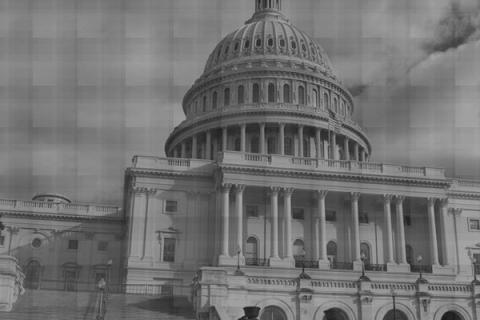Ever since Ralph Nader's infamous impact on the 2000 presidential election, both the Democratic and Republican parties have feared an influential third party candidate. While third parties provide hope for independent voters, the establishment is worried about the threat to its power. Party leaders see the grim possibility of the spoiler effect, in which a minor independent or third party candidate draws votes away from a major candidate, affecting the outcome of an election.
The two major parties also fear that an influential third party will permanently damage their base of supporters. This election cycle, those fears are beginning to focus on Gary Johnson, the Libertarian Party's candidate for President. Both Republicans and Democrats have reasons to worry about Gary Johnson. Republicans fear Johnson because of his track record of fiscal conservatism, which appeals to fiscal conservatives worried about Romney's perceived moderate stance. The Club for Growth reports that as governor, he had an excellent record on fiscal issues.
"Governor Johnson was one of the most anti-spending governors in New Mexico history. Governor Johnson set a state record for vetoes as Governor, earning the title 'Governor No' after 742 total vetoes of bills over two terms."
Johnson has promised to present a balanced budget in his first year in office, a stark contrast to most Republican proposals, which do not balance the budget for decades:
"Former New Mexico Gov. Gary Johnson says he would veto any legislation that doesn’t balance the federal budget if he’s elected president... He also vowed to submit a balanced budget to Congress in 2013. 'I am promising to veto legislation that does not balance the federal budget.'"
Not surprisingly, Republican leaders worry that Johnson could draw voters away from Mitt Romney. Michigan's Republican Secretary of State is fighting to keep his name off the ballot in Michigan, using an obscure law to justify this action.
"On May 3, Michigan Secretary of State Ruth Johnson, a Republican, sent a letter to the Michigan Libertarian Party, saying she would not print Gary Johnson’s name on the November 2012 ballot as the Libertarian nominee for President, should the party nominate him."
This is based on a "sore loser" law, which states that candidates who had previously appeared on a primary ballot for one party cannot appear on the ballot in the general election as a candidate for another party. The application of the law in a presidential election is dubious and contrary to state precedent.
"In 1980, John B. Anderson formed the 'Anderson Coalition Party' within Michigan, and his name was printed as that party’s presidential nominee in November 1980, even though Anderson had run in the Michigan Republican presidential primary on May 20. Thus, a precedent was set that this law does not apply to presidential primary candidates."
Gary Johnson's candidacy demonstrates the Republicans' fear of third party candidates, and its use of ballot access restrictions to prevent candidates who offer independent voters real choices from appearing on the ballot. While some Democrats secretly rejoice at the prospect of a prominent Libertarian Party candidate, they have reasons for worry as well. Johnson strongly supports many issues usually associated with the Democratic Party.
"On civil liberties, drug laws, defense spending and foreign wars, he outflanks President Obama from the left."
He poses a threat to President Obama, because of his tremendous appeal to independent voters.
"The danger for Democrats isn’t that Johnson will win a significant percentage of the Left’s vote. The danger is that he’ll peel away a sizable share of the much-prized independent voters, who tend to be fiscal conservatives and social liberals, and who might feel, understandably, that Obama hasn’t played it straight with them."
The bottom line is that both parties fear third party or independent candidates, simply worrying about their power base. They refuse to examine whether the appeal of these candidates might demonstrate that the main parties have lost their way. Gary Johnson brings new ideas to the table, ideas that appeal to voters across the political spectrum.
But partisan politics is no longer about the will of the people or the common good. Such ideals have been surrendered for a dogged defense of the status quo. Independent voters relish the thought of real choices, third party candidates who are refreshingly different than the candidates turned out by the two party system. However, the establishment is not above using ballot access tricks to lock these candidates out of the election. Such actions may safeguard party power, but they hurt the American people. It is time to forget our fear and focus on the issues, not party affiliation. Americans deserve real options for a change.

